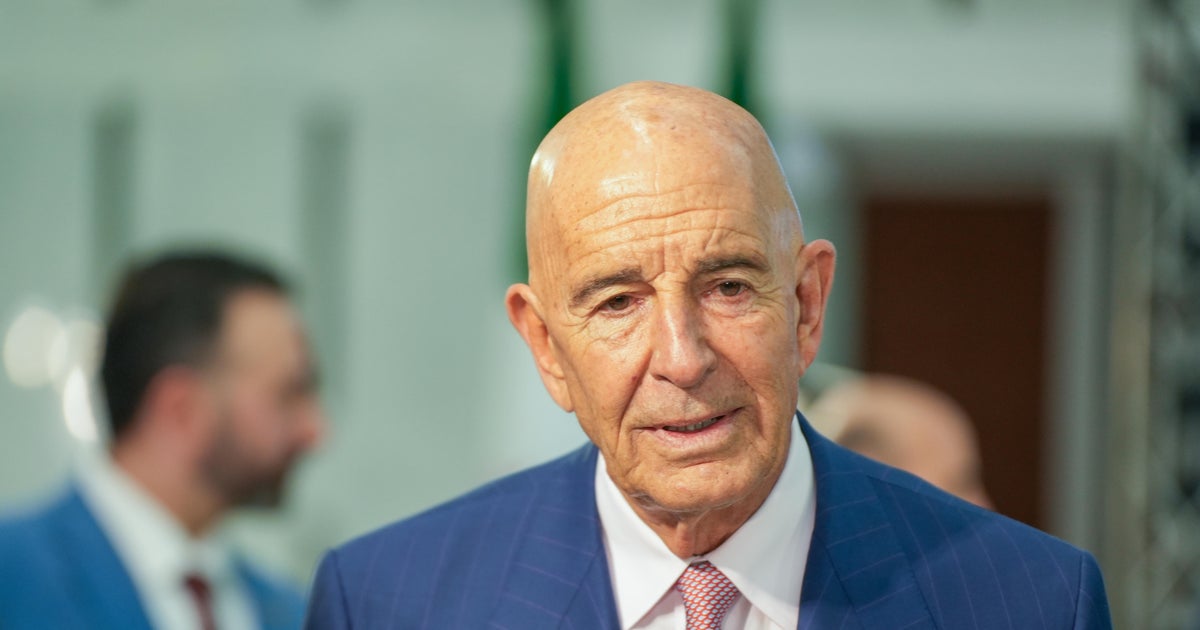More than 100 Republicans sign letter urging Trump to back off on tariffs
More than 100 members of President Trump's own party signed a letter addressed to him Wednesday, expressing "deep concern" over his proposed tariffs and asking him to reconsider. Mr. Trump's announcement last week that he will impose a 25 percent tariff on imported steel and 10 percent tariff on imported aluminum has been met with opposition, but so far, he hasn't given any indication that he's backing down.
The letter is signed by Rep. Kevin Brady, the Texas chairman of the House Ways and Means Committee, along with 106 other members of the GOP. In it, the Republican members urge Mr. Trump to reconsider "broad" tariffs, saying that if the president wants to target China, there are better ways to do so. Mr. Trump has repeatedly said that too many countries — both friends and enemies — have taken advantage of the U.S. for far too long, and that's going to change.
"We are writing to express deep concern about the prospect of broad, global tariffs on aluminum and steel imports," the letter says. "Because tariffs are taxes that make U.S. businesses less competitive and U.S. consumers poorer, any tariffs that are imposed should be designed to address specific distortions caused by unfair trade practices in a targeted way while minimizing negative consequences on American businesses and consumers."
The letter specifically mentions the tax cuts the Trump administration and Congress worked so hard to pass just last year, saying that "adding new taxes in the form of broad tariffs would undermine this remarkable progress."
If Mr. Trump does move forward with tariffs, the members proposed a handful of suggestions to "minimize negative consequences." The letter proposed that relief be narrow, with a robust exclusion process so U.S. companies can petition for duty-free access for some imports. Lawmakers said it should allow for existing contracts to purchase aluminum or steel to be grandfathered in, and there should be a review on a "short-term basis" of the impact on the economy, to see if another approach would be more effective.
"We support your resolve to address distortions caused by China's unfair practices, and we are committed to acting with you and our trading partners on meaningful and effective action," the letter concludes. "But we urge you to reconsider the idea of broad tariffs to avoid unintended negative consequences to the U.S. economy and its workers. We are eager to work with you in pursuing a workable, targeted approach that achieves our shared goal."
Republican leaders have also come out against the tariffs proposal, and Speaker of the House Paul Ryan, R-Wisconsin, has urged Mr. Trump to take a more targeted approach.
Mr. Trump has talked up the need for fair trade since the outset of his presidential campaign, and speaks often of trade deficits with other nations. But his tariffs announcement last week sent shockwaves not only throughout Washington, but throughout his own administration and Congress. The president's decision was soon followed by the announced departure of Gary Cohn, the president's chief economic adviser who had tried to keep him from imposing such tariffs.
Mr. Trump maintains that trade wars are a good thing, even as Treasury Secretary Steve Mnuchin has said the U.S. isn't looking for a trade war.
On Wednesday, White House press secretary Sarah Sanders gave the first indication that there may be relief for some countries. She suggested Mexico and Canada may receive some exemptions for "national security" reasons, even though the White House has insisted the tariffs are being imposed in part for the sake of national security.
CBS News' Rebecca Kaplan contributed to this report.



